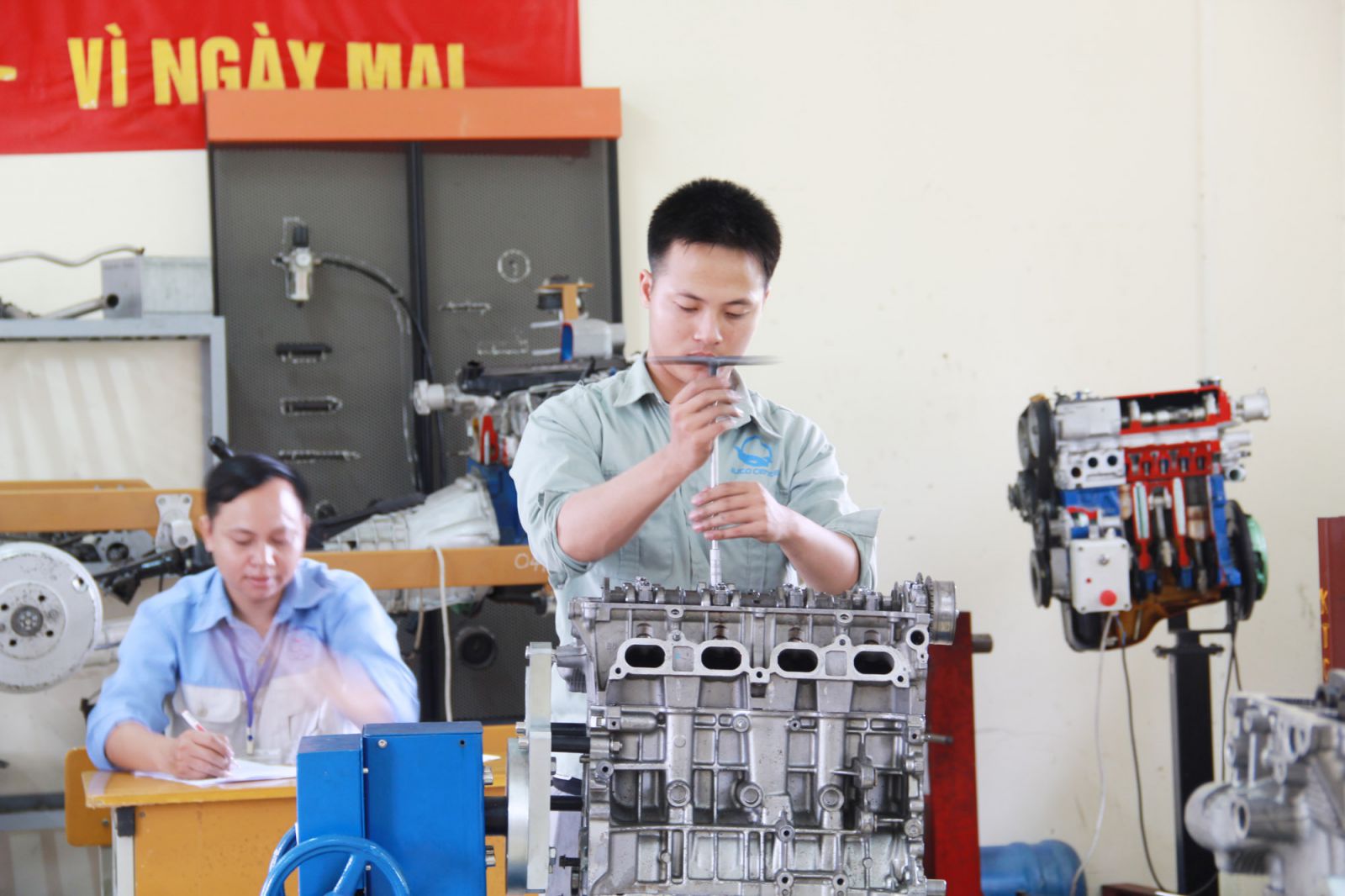Doãn Giang Sept 28 2019 9:30AM GMT + 7
According to Mr. Le Anh Duc - Principal of Dong Nai High-Tech College, the connection between enterprises and vocational schools so far has mainly brought students to practice, very few businesses have participated in developing standards. output.
“Calling businesses to participate in the training process is very difficult, in part because of the strict standards set by the enterprises; partly because the teacher standards are too high by the government, such as having to have degrees and certificates according to the regulations ... This is really a problem for businesses who want to directly participate in training human resources. "- Mr. Le Anh Duc said.

Meanwhile, Ms. Dang Thi Hong - Recruitment Manager of LG Display Hai Phong Company - joint venture with South Korea, said the company's recruitment criteria for employees is to be fluent in foreign languages (English or Vietnamese). Solder); ability to work in the Korean environment; knowledgeable and knowledgeable about Korean culture; Good at practicing. This is a very strict criterion, requiring candidates to receive basic training in an environment connected with Korea, which is also a subjective requirement that makes it difficult for vocational schools to meet.
“Enterprises are not responsible for training, while abundant resources are available from vocational school graduates. Each business has its own recruitment criteria and varies by stage. So most businesses often look for available candidates rather than training from the beginning, ”Ms. Hong shared.
According to representatives from a number of vocational schools, most vocational schools focus on training the businesses that they need or order, these are basic jobs, popular in the locality. As for international-level and high-quality careers, businesses recruit graduates who do not want to participate in training. "Enterprises and schools are like two people going from the South to the North and vice versa, but they do not meet at one point because the two people go two different ways," a representative of a vocational school said.
According to the representative of Golden Gate Trading and Services Joint Stock Company (Golden Gate), with the human resource demand in Hanoi area of about 3,000 employees / year, the Company always prioritizes recruiting students, graduates The school has major in Food Processing, Restaurant Operations, Mixing Techniques. In 2018, the Company admitted 200 students of Hanoi Tourism College to practice, then received 130 people to work after graduation.
In 2019, the Company signed a cooperation agreement with 17 vocational training institutions in Hanoi, with the goal of ordering 2,650 people for training, receiving internships and recruiting annually. In addition, the Company recruits students to work on a part-time basis of about 2,000 people per year.
Deputy Director of Hanoi Department of Labor, War Invalids and Social Affairs Nguyen Thanh Nhan assessed that the business cooperation with vocational training institutions is an encouraging signal, paving the way for a long-term progress when businesses and facilities Vocational education has identified the common interests, the same responsibility in the training of human resources, towards the common interests of the whole society.
“For business-school agreements to be effective, businesses need to actively participate in the development of training programs and curricula in their fields for schools. At the same time, businesses should actively send experts to participate in training, along with vocational education institutions in the areas of their strengths; accepting students to participate in internships, creating stable job opportunities for them after graduation, as well as assessing the quality feedback of students and students ”- Ms. Thanh Nhan said.
Mr. Do Van Giang - Director of the Formal Training Department, General Department of Vocational Education, emphasized that to encourage businesses to participate in the training process, it is necessary to build 3-party relationship in training: the state, the businesses and schools. How to let businesses see that they benefit, and what is the responsibility for vocational training ?. That way, businesses and schools can shake hands with each other, understand each other better and the beneficiaries will include students.
However, according to Mr. Do Van Giang, there are many Decrees regulating training links, but it is still not really clear, there are many bottlenecks that businesses are not keen on vocational education. To solve this problem, the responsibilities, roles and interests of enterprises must be institutionalized in the Labor Code (amended), the Law on Vocational Education; It may even need to be further concretized by Government Decrees.